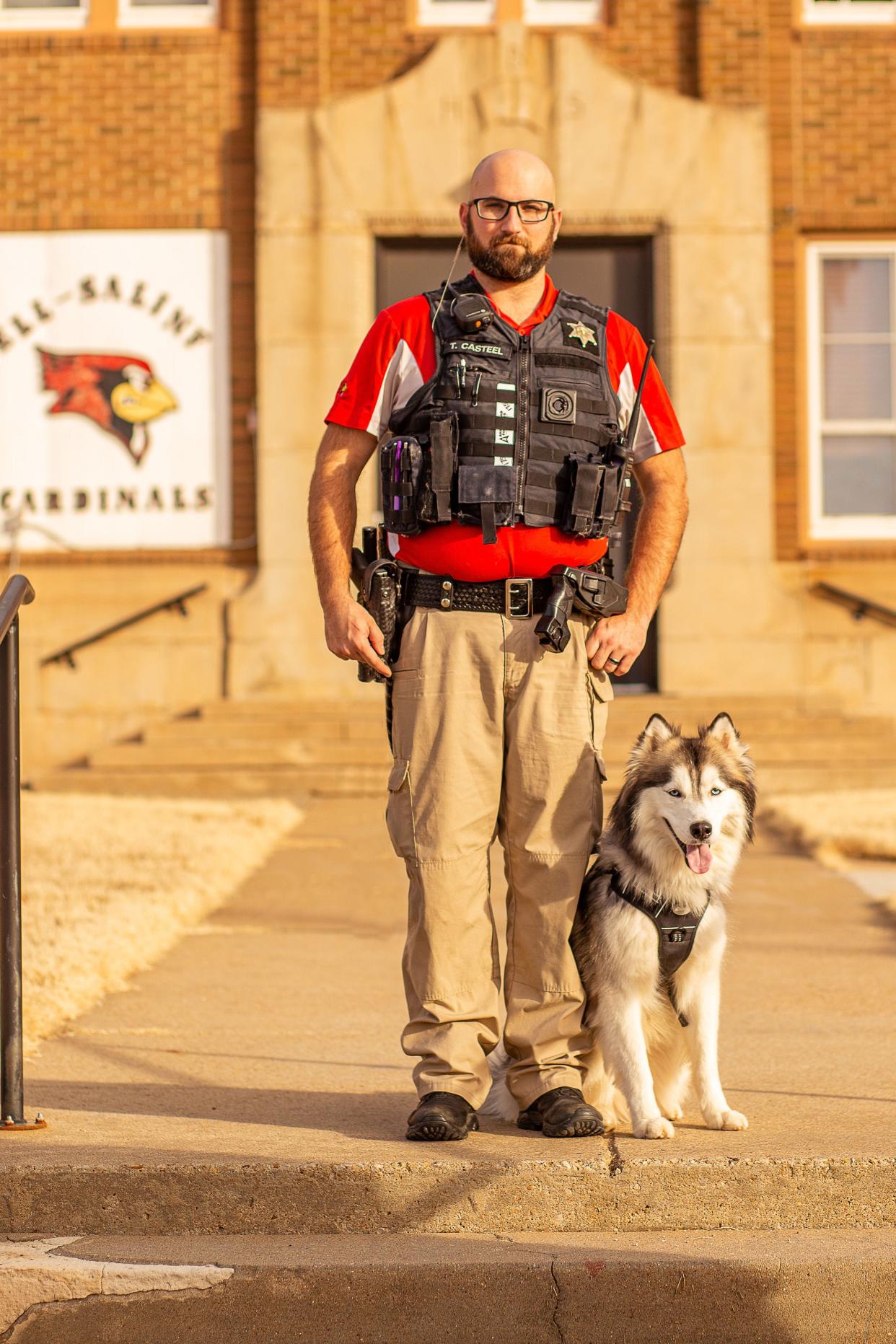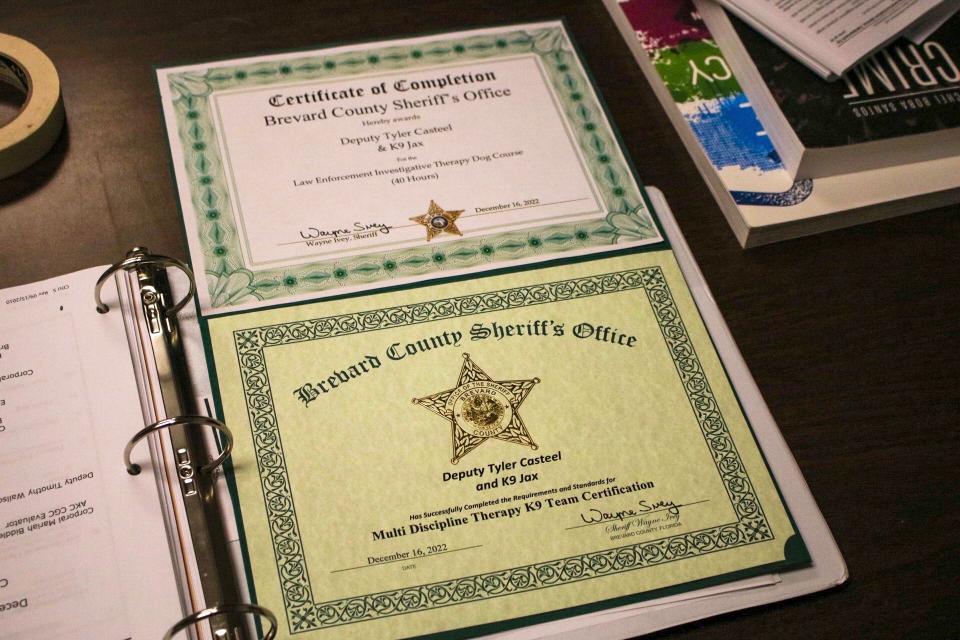Meet Jax and Piper, Saline County's new K-9 therapy dogs

A couple new faces at Ell-Saline and Southeast of Saline schools also happen to come with four paws.
Saline County School Resource Officers Tyler Casteel and Braden Long introduced their K-9 partners to their respective districts earlier this month after attending a week-long training in Florida.
The deputies traveled to the Brevard County Florida Sheriff’s Office “Paws and Stripes College” to learn the ins and outs of handling a law enforcement investigative therapy dog.
“We learned, truly, what great things these dogs are capable of,” Casteel said.

What is an investigative therapy dog?
The use of therapy dogs in law enforcement is a unique and groundbreaking procedure that only a few agencies across the nation have begun participating in. They are K-9s, but not the kind people usually think of.
These dogs are K-9 partners who can provide assistance in a number of ways, for example: calming people in crisis, interviews with children and adults, critical incident debriefings and other public events.
The unique program offered by the Brevard County Sheriff’s Office uses recued dogs that are trained by inmates under the supervision of professional trainers to provide trained therapy dogs at no cost.
Casteel said he and Long piqued Saline County Sheriff Roger Soldan’s interest in the program after discussing its potential benefits.
“We did more research on it and came back to him and he immediately gave it the thumbs-up,” Casteel said.
The FBI introduced its first therapy dog to the force in 2012, and since then, further academic research on the use of them have flourished. In 2016, an expert opinion published in the American Psychology-Law Society newsletter evaluated the use of therapy dogs in child abuse investigations.
Other research has similarly found empirical support for the benefits of using therapy dogs in investigations involving children.
"They've been showing that the use of dogs, especially, have been helping out with these critical incident debriefs," Casteel said. "People talk to the animal... they talk to the dog, and we see that a lot with children... you take a dog to a kid, it's amazing how much (it helps). You might ask them a few questions, but they will talk to that dog."
Casteel said the dogs can also help first responders in situations of high distress. While it is important to do your job well, he said, there is also a stigma that people in those first-response roles are supposed to be tough and never show emotions.
“We want to be that tough, exterior shell of a person. We don’t want to show emotions,” Casteel said. “So how do you get through that, how do you break the barrier?”
One way, experts have found, is through therapy dogs on response.

Meet Jax and Piper
Jax is an Alaskan Malamute mix, but Casteel calls him a “Florida Malamute” since he doesn’t like the snow quite yet. The two are assigned to USD 307, working at the Ell-Saline schools.
Piper is a Basenji Border Collie mix, also still getting used to the change of scenery in Kansas. She and Long are assigned to USD 306, Southeast of Saline schools.
Both K-9s completed 14 weeks of training to become a Nationally Registered Therapy Dog Team. This means they are recognized for their abilities to be deployed in all kinds of situations that might require the services of a therapy dog.
In Florida, deputies Casteel and Long learned how to interact with people with the dogs, conduct child interviews, and how they assist in response to a number of different crisis situations.
The thorough Law Enforcement Investigative Therapy Dog Course was 40 hours, but their training didn’t stop there. Casteel and Long work with their dogs on a daily basis to maintain their skills.
"We keep working with them every day. A good part of our day is working on obedience training," Long said. "And Piper is doing really good with obedience."
In addition to daily training, deputies Long and Casteel keep a log of deployments (times the K-9s are used in different situations) and shifts for their furry friends who, even possessing many skills, haven't yet mastered Microsoft Excel.
"Dogs are a calming presence for most people," Long said. "Piper is still working through some things, but this has been exciting. ... It's all very new, but it's also really fun."
The certification program requires K-9s and their partners to complete the training at least every three years, but Casteel and Long said they are hoping to make the trip yearly.
Kendrick Calfee has been a reporter with the Salina Journal since 2022, primarily focusing on county government and education. You can reach him at kcalfee@gannett.com or on Twitter @calfee_kc.
This article originally appeared on Salina Journal: Saline County SROs get nationally certified K-9 Therapy Dogs

